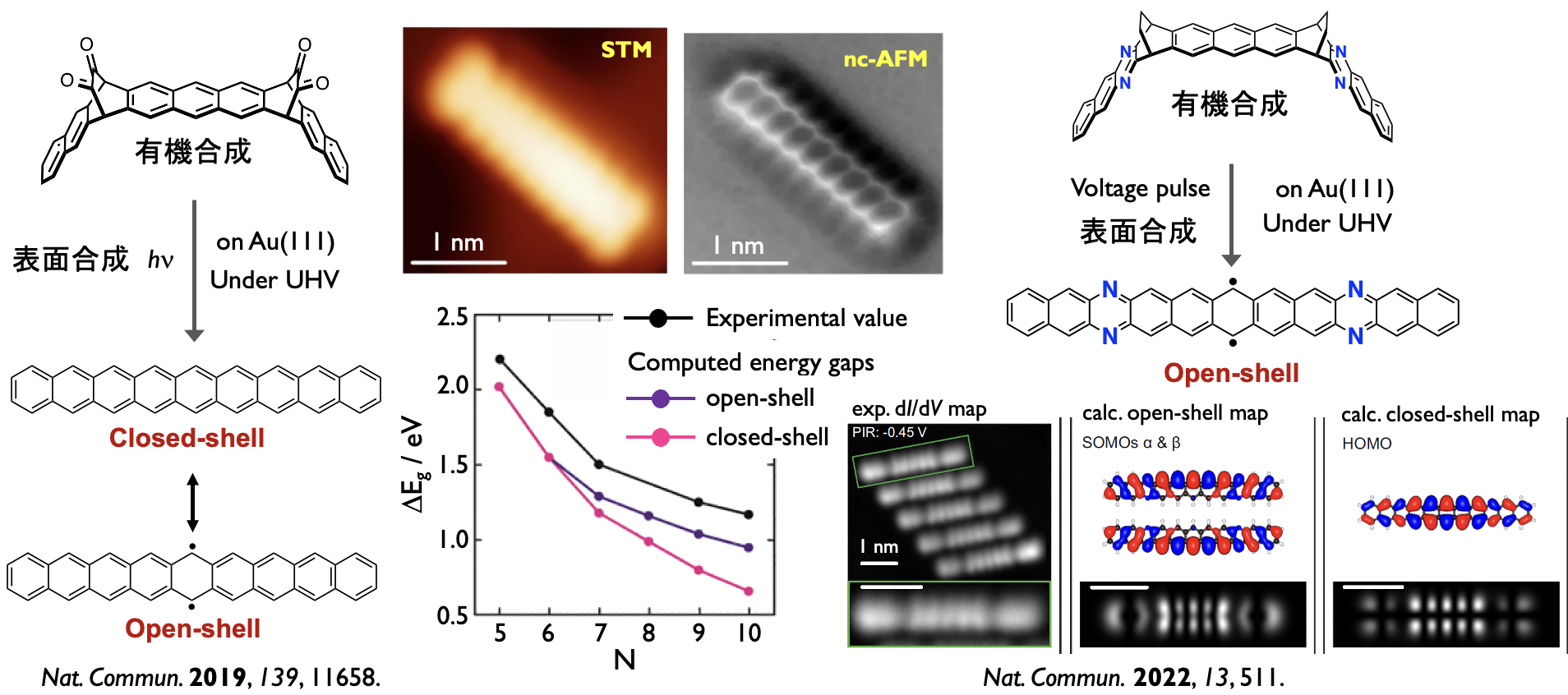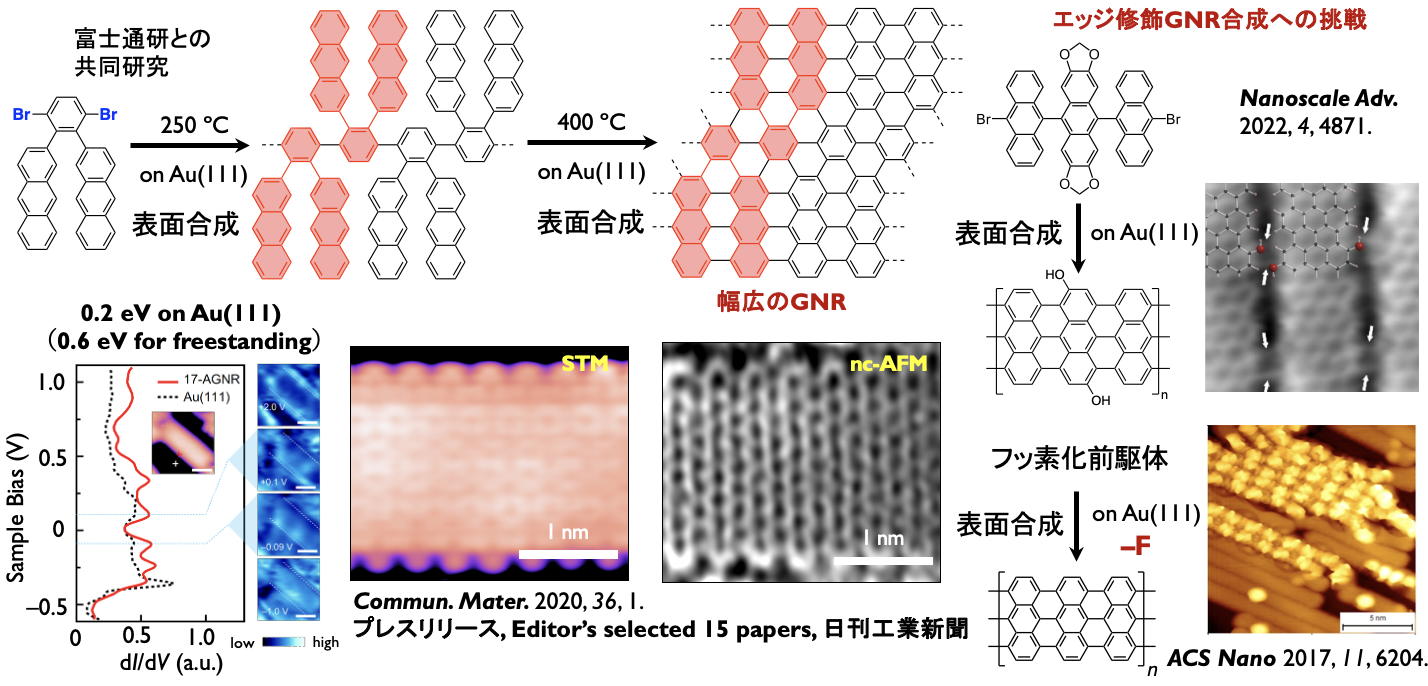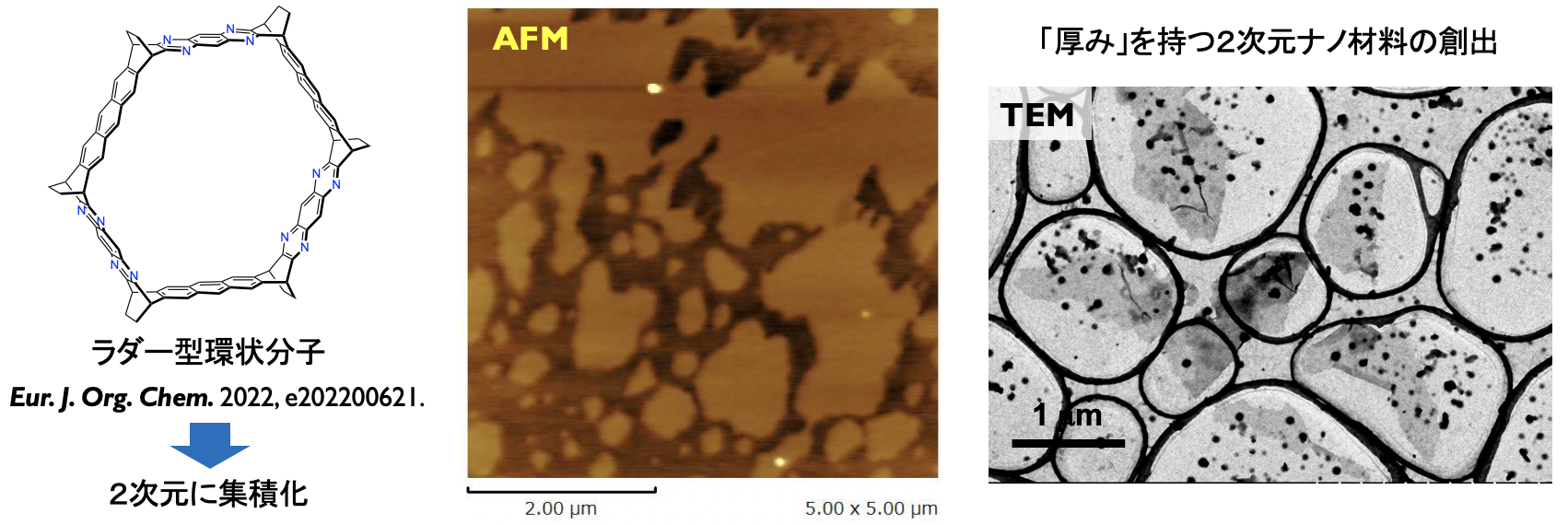Research
Our team develops functional materials based on organic synthesis.
Efficient exploration of nanomaterials through the integration of organic synthesis and on-surface chemistry
Polyacenes are polycyclic aromatic hydrocarbons composed of linearly fused benzene rings. Despite their simple structure, they exhibit interesting characteristics such as excellent charge transport properties and magnetism. They are also considered as precursors and partial structures for graphene nanoribbons (GNRs). Our team synthesizes polyacene and their precursors. Furthermore, they are applied for on-surface synthesis to provide polyacenes/GNRs and investigate their magnetism. Through the precise synthesis of precursor molecules via organic synthesis and combinations with on-surface synthesis and probe chemistry, we aim to develop two-dimensional organic nanomaterials with advanced functionalities.


Development of functional materials based on organic synthesis
Organic π-conjugated molecules are extensively studied as organic semiconductors due to their efficient charge transport properties. Our team focuses on designing and synthesizing acene-based compounds which possesses rigid and large π-systems. We particularly focus on applying these molecules in organic devices such as organic single-crystal field-effect transistors (FETs).

Bottom-up synthesis and functional exploration of two-dimensional nanomaterials
Our team creates two-dimensional nanomaterials through a bottom-up approach. Two-dimensional nanomaterials with π-conjugated systems have great potential for applications in high-efficiency semiconductors, magnetic materials and sensors, wide-range light-harvesting materials, and battery/electrode materials. The diverse functionalities of two-dimensional nanomaterials stem from their structures. Synthetic developments of nanomaterials with various structures directly leads to a wide range of functionalities.

